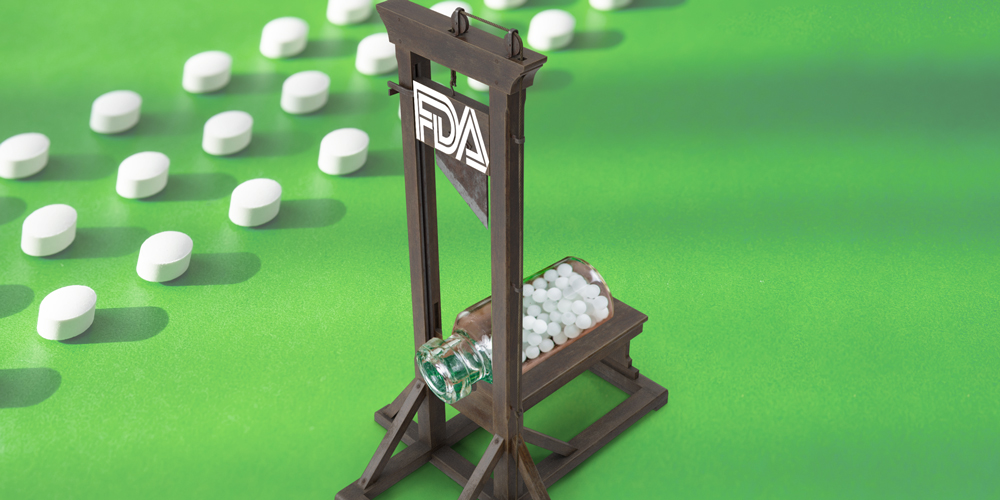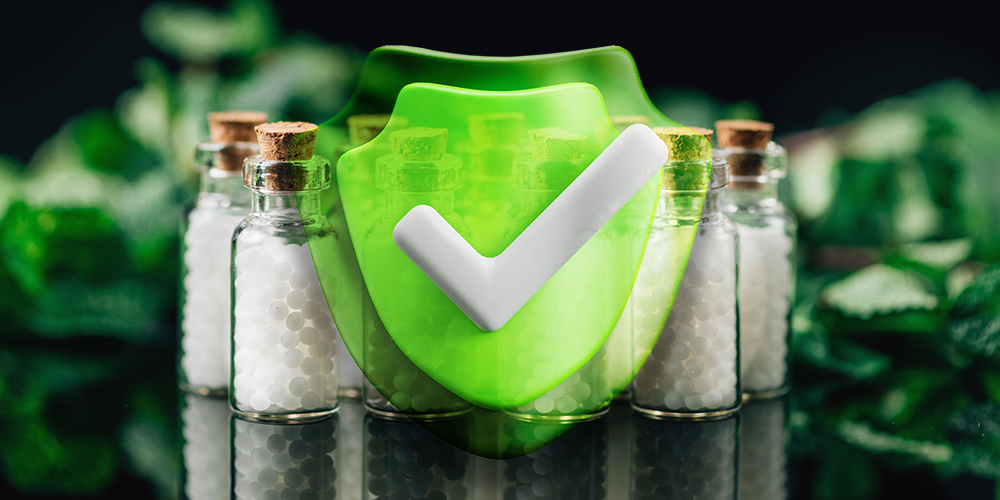Now is our opportunity to put permanent protections in place so the FDA cannot eliminate important homeopathic medicines you care about. Action Alert!
Listen to the audio version of this article:
THE TOPLINE
- The FDA issued a warning stating that some homeopathic products may pose risks to consumers and are marketed without meeting modern safety, effectiveness, and quality standards. This advisory signals increased scrutiny and potential enforcement actions against homeopathic medicines.
- The FDA has declared all homeopathic products as marketed illegally, giving itself the authority to remove any product from the market. Recent enforcement actions, such as a $3.575 million settlement with Similasan, highlight the FDA’s focus on certain product categories like eye care and injectables.
- ANH and Meditrend have filed a lawsuit challenging the FDA’s policies and are exploring legislative solutions to safeguard homeopathic medicines.
Are you ready for a future where homeopathy no longer exists? That’s where we’re heading, unless we band together and capitalize on this crucial moment.
in spite of, or perhaps because of, the changing of the political guard and the nomination of Robert F. Kennedy Jr. to head the Health and Human Services Department (HHS), the FDA is not letting up in its attacks on homeopathy. Just this month, the FDA released a statement warning that “Some Homeopathic Products May Put You at Risk,” and that homeopathics are marketed “without FDA review and may not meet modern standards for safety, effectiveness, quality and labeling.”
These kinds of attempts to shape consumer perception of homeopathy have been coupled with removing entire categories of products from the market, like injectables and eye care products. Because of the FDA’s new policy, Similasan—a prominent homeopathic manufacturer of eye-care products—got hit with a $3.575 million settlement. Unless something changes, there will be more of the same in 2025.

The central issue is this: no homeopathic medicines are safe from FDA enforcement. At any time, the FDA could pull any product or group of products it wants to. How? Because, in its updated homeopathic policy, the FDA declared that all homeopathic products are marketed illegally. The agency said it will focus enforcement on certain categories of products but is clear in stating that it has the power to remove any product it wants to, whenever it wants to.
But times are changing. Late last year, we launched a lawsuit alongside homeopathic manufacturer Meditrend, challenging the FDA’s revised policy, arguing that the agency has overstepped its legal authority by ignoring provisions of the Coronavirus Aid, Relief, and Economic Security Act of 2020, which aimed to reduce regulatory burdens on OTC products and recognized homeopathics as a “unique and separate category of drugs.”
Speaking on the issue, ANH General Counsel Jonathan Emord said, “While the nation was under the dark cloud of COVID, FDA put in place a rule that declares homeopathy unsafe and demands unprecedented pre drug approval for homeopathic products. The Congress never required that approval on the basis that homeopathics are incredibly safe—safer than foods. Rather than remove all homeopathics at once, FDA is using the rule to pick off companies bit by bit and intimidate others into non-existence, thereby deceiving consumers into thinking the disappearance of companies is a product of market failure. This FDA did to serve the long-term goal of Big Pharma to deny consumers any choice other than FDA approved drugs.”
ANH and allies are also in the process of exploring legislative options to create safe harbor for homeopathic medicines.
Finally, the nomination of RFK Jr. to lead HHS is critical, as we know he is eager to shake up entrenched forms of power (like big pharma) and to open up space for holistic treatments in an effort to “Make America Healthy Again.”
It’s worth noting the irony in the FDA’s recently issued warning. For example, the agency states, “It is FDA’s public health mission to protect consumers from unsafe, ineffective and poor-quality drug products, which may cause significant and even irreparable harm.” The FDA has not reviewed homeopathic drugs, so how can we know if they’re safe and effective?
The data paint a crystal-clear picture: homeopathic medicines have a strong track record of safety. A review of the evidence of adverse events related to homeopathy, which included data from 12 European countries, the US, Mexico, India, Israel and Brazil published between 1978 and 2010, found a total of just 1,159 adverse events. This equates to an average of just over 50 cases per annum across all 17 countries from which studies were conducted.
Surely, the drugs that the FDA reviews and approved for safety and efficacy must fare much better? Would you be surprised to hear that new prescription drugs have a 1 in 5 chance of causing serious reactions after they have been approved? Or that properly prescribed drugs (aside from misprescribing, overdosing, or self-prescribing) cause about 1.9 million hospitalizations a year and 128,000 deaths?
>>>ANH leaders Rob Verkerk, PhD and Jonathan Emord, JD, discuss some of this sordid history in our new e-book, The MAHA Mandate: Reversing America’s Chronic Disease Epidemic. Support our work by purchasing your electronic copy today! Hard copies will be available at our U.S. Senate briefing on Wednesday January 29, and will be more widely available through online retailers shortly thereafter.
As we’ve argued before: The FDA does not like that there are medicines out there that it does not have authority over, so it does everything in its power to eliminate them, using safety as a justification—as if FDA approval was any guarantee of safety! The FDA gets a large part of its funding from drug company user fees, and for this reason sees big pharma as its client. Homeopathic medicines, like supplements and other natural products, compete with pharmaceutical drugs, so the FDA uses its enormous power to tilt the scales in favor of the drug companies. And because natural products and homeopathic medicines generally cannot be patent protected like drugs can, they can’t afford FDA approval and so cannot make disease claims. It is one among many ways cronyism is undermining healthcare in this country.
Action Alert! Write to Congress in support of a legislative fix to protect access to homeopathic medicines. Please send your message immediately.





Friends…I fully understand your concerns here BEFORE the election, but now that RFK may assume the leadership of DHHS…plus new excellent appointments to head of the FDA, CDC, and NIH will soon become a reality. I therefore think that your WARNING about potential dangers to homeopathy are totally premature.
We shold NOT assume the worst from this new administration. In fact, we can and should expect the exact opposite.
I am concerned about this fear-monger you are engendering here, even though we have every reason to be very optimistic.
The two sides to this discussion are worthy of exploration. One side sees the clear and present threat to the access of homeopathic remedies. Indeed, in my community access to remedies at natural health food stores and other brick and mortar locations has been drastically reduced. In fact, even the most easily accessible remedies are no longer available to the public. I remember in 1995 giving my son Hylands teething tablets in front of my pediatrician who told me those were a waste of money and there wasn’t anything in there but sugar pills. Fast forward to our third child and all of a sudden the Belladonna in those tablets were going to kill him. Which one is it? Nothing but a sugar pill, or deadly ingredients that force immediate removal? We have experienced the attack on homeopathy for decades now, so the calls to stand down and hope for the best with RFK seem short sided at best.
I do hope that the winds of change restore the freedom, however in my estimation there is so much to clean up that the lowest hanging fruit will be the place the reform will start. Launching a resistance to the slow and steady attack on homeopathy is a worthwhile endeavor, in my opinion. While I have read and appreciate the considerable contribution by Dana Ullman to the body of work; I also hesitate to ignore the call to action. If and when RFK gets around to homeopathy, our important access will have been stymied considerably as it already has. Dana Ullman likely has much easier access and knowledge to potenize remedies himself and is not beholden to public access. In fact, in almost half of the states of this country the only remedies accessible are the ones found at a Whole Foods or the like. Well here where I live, WF doesn’t even carry homeopathic remedies anymore. I would anticipate that this current state of affair regarding access to remedies may not be on the radar of most.
Nevertheless; I believe wholeheartedly that the attack on homeopathy is so considerable that the current class of Naturopathic Doctors are so uninformed and misguided, let alone brainwashed….as such the art of homeopathy in this country is on a fast track to extinction. Quite frankly the thought of that breaks my heart. Get involved, get educated and get motivated. That’s my .20 worth anyhow.